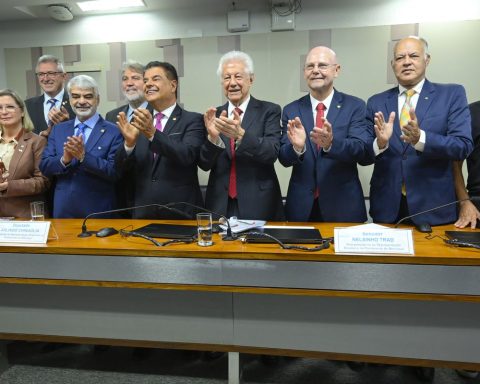The remote work revolution has led to some US technology companies to look for new hiring in Latin Americawhere they can find qualified professionals in a similar time zone and willing to work for lower pay. It is a logical extension of the distancing of workplaces like San Francisco and New York to less expensive places, even across national borders, as a result of the implementation of remote work due to the pandemic.
(January 2022, with 1.5 million more jobs than in 2021).
What’s more, currency quotes against the dollar only reinforce the trend. Brazil, in particular, has become increasingly attractive to those with dollars to spend. Since the start of the pandemic, the Brazilian real has depreciated by more than a quarter of its value. Other Latin American currencies, such as the Argentine peso and the Colombian peso, are also among the worst performers in the last two years.
(This is how leaders have reacted to the January unemployment rate).
So when a Silicon Valley startup hires someone like Alexandre Rocco, the deal ends up being attractive to both parties. In May, the Sao Paulo resident received a LinkedIn message from Brazilian headhunter Revelo asking if he had ever considered working for a US company.
The 41-year-old said he had always been curious about the idea, but thought there would be complex barriers to overcome. That turned out not to be the case, and within months he was working from his home as an engineering manager for the San Francisco-based startup Walrus Health. Rocco says he’s aware that he’s probably getting paid less in dollar terms than he would if he were hired in the U.S. However, he thinks it’s still a good deal. He says that his salary increased by 40% when he changed jobs, although he refused to reveal his exact salary. ‘Very, very, expensive’.
At the other extreme, Walrus benefits from cheaper labor abroad, at a time when American companies they are forced to raise wages due to domestic inflationary pressures. “The Bay Area got very, very expensive,” said Kimball Thomas, CEO of Walrus.
Thomas lived in Brazil in the 2010s and knows that, despite the added bureaucracy, “the salaries there are much lower,” so he ended up hiring a handful of Brazil-based programmers, including Rocco, who now They make up half of their development team. “This is not a temporary fix,” Thomas said. “We really want it to work for the long term and we will look to invest in it.”
The idea could appeal to an American tech industry that could face a shortage of at least 1.2 million tech workers by 2030, according to a study by consultancy firm Korn Ferry. In recent months, the number of foreign companies hiring talent in Latin America has increased 156%, the most of any region in the world, with software engineers leading the hiring boom, according to a report by the global recruitment firm. Of the.
Cultural similarities and a qualified pool of talent also help make Latin America an attractive market. This allows employers to “immediately connect” with local workers, said Pepe Villatoro, Deel’s regional head of expansion.
In 2021, the average tech salary fell 1.1% in major US hubs, the first drop in five years, according to a Hired technology market report.
Meanwhile, the rest of the world caught up, with global tech wages rising 6.2%. Salaries for junior positions in Latin America posted on the Revelo platform have risen nearly 50% to around $89,000 a year on average since the start of the pandemic. “If I hire someone in Cleveland, why not hire someone in Bogotá?Josh Brenner, CEO of Hired, said in an interview. “They’re both remote, they’re both in the same time zone. And doing it that way is more profitable for me right now.”
From the coastal city of Florianopolis in southern Brazil, Janaina Coelho earns between $3,000 and $5,000 a month working as a QA developer for Los Angeles-based hospitality startup AvantStay.
Before the 32-year-old developer left her job at a Brazilian information technology company last year, Coelho said she was not considering moving to a foreign company. But then she started getting offers, and the promise of a salary in dollars and the option of remote work sounded appealing. “Why did I go abroad to look for work? Because foreign companies began to approach me,” said Ella Coelho. “I started getting new proposals every week.”
Pia Orrenius, vice president of the Dallas Fed Bank, says the relocation of technological positions it might not be as easy as it seems. The decades-old boom in offshore business outsourcing relied heavily on cheaper English-speaking labor like India. Reproducing that with tech workers in Spanish- and Portuguese-speaking Latin America will be more difficult on a large scale. “Good luck finding people who speak English fluently,” said Orrenius, a labor economist. “There are a lot of limits to the extent to which employers can do this.”
But for Lucas Mendes, co-founder of Revelo, those companies looking for talent abroad are now getting ahead of what will soon become a need. Mendes says that he pandemic-driven remote boom has prompted the Sao Paulo-based recruiting company to expand four times, and that has attracted clients ranging from startups to big-name clients, including Goldman Sachs Group Inc. and Accenture Plc. “The pandemic turned the local market into a global one,” Mendes said. “The genie is out of the lamp.”
BLOOMBERG
















